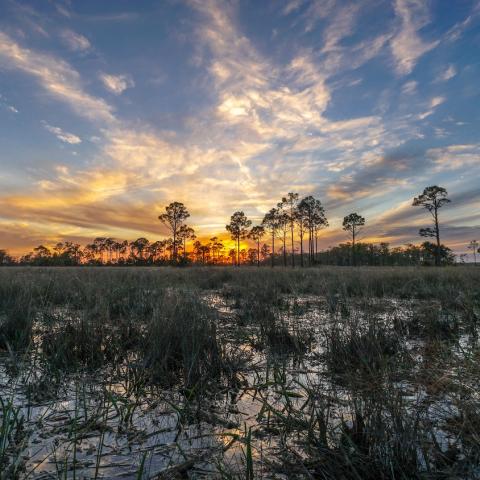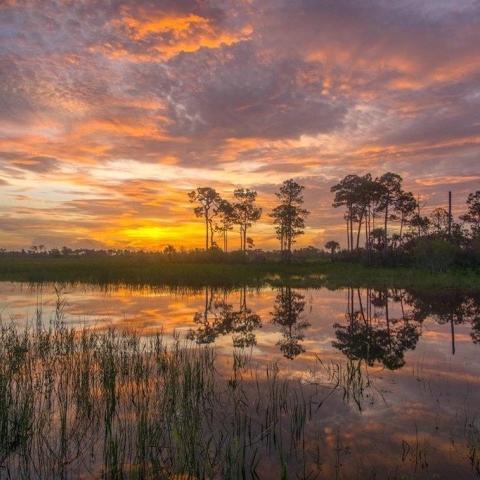
A coalition of conservation organizations has asked the National Park Service to reject a proposal to send "thumper trucks" into Big Cypress National Preserve in a search for energy deposits/NPS
A coalition of conservation organizations has asked the National Park Service to reject Burnett Oil Company’s proposed seismic testing for oil and gas on privately-held mineral rights beneath Big Cypress National Preserve.
The seismic testing, the first step toward oil drilling, would drive off-road trucks weighing as much as 30 tons through 110 square miles of Big Cypress. Big Cypress covers 720,567 acres of wetland ecosystem in southwestern Florida, including much of the western Everglades, and is home to a wide array of endangered species, including the Florida panther, the wood stork, the red-cockaded woodpecker, the gopher tortoise, and the American alligator. The groups are asking the NPS to reject Burnett’s plan, which fails to take the environmental impacts into account.
“Testing of this size and magnitude is unprecedented in Big Cypress, or really in any national park,” said John Adornato III, the Sun Coast regional director for the National Parks Conservation Association. “Seismic testing and oil drilling would not just harm the endangered species that live in the preserve, but it would also threaten this important recreational destination enjoyed by 1.2 million visitors each year.”
When the land that became Big Cypress National Preserve was transferred to the federal government in 1974, many of the underground acres remained privately held. The private owners retain the right to extract minerals from their lands. There are currently 20 active wells in Big Cypress, according to an NPCA release.
The proposal being considered by the NPS is the first of a four-part exploration that involves using 33-ton “thumper” trucks equipped with seismic vibrators over 360 square miles of Big Cypress. Environmental impacts of the seismic testing alone would be immense, affecting wildlife, defoliating and flattening vegetation, altering hydrology, compacting and rutting sensitive soils, and more, the groups contend. The addition of the trucks would further damage this fragile area.
The coalition's comments –- submitted jointly Monday by NPCA, the Natural Resources Defense Council, Center for Biological Diversity, Conservancy of Southwest Florida, Earthworks, South Florida Wildlands Association, and Clean Water Action –- argue that the environmental review of Burnett’s plan, performed by the NPS, was insufficient in several respects, including a failure to consider less-damaging alternatives and a lack of consideration to the impacts on wildlife, plants, park visitation, recreational use, hydrology, and other environmental impacts.
“This kind of proposed development is incompatible with the mission of Big Cypress, which is to preserve and protect this amazing landscape and its unique wildlife for visitors now and for generations to come,” said Mr. Adornato. “We’re confident a more thorough environmental review will reveal what we already know. This seismic testing and oil drilling will do irrevocable damage to one of Florida’s most iconic landscapes and should not be allowed to move forward.”




 Support Essential Coverage of Essential Places
Support Essential Coverage of Essential Places







Comments
Drilling for oil in Big Cypress is beyond incompatible. It's in line with roads being referred to large can openers through communities and sensitive lands. What will it cost and at what cost to our environment will this do? Florida is slowly loosing precious recharge areas, increasing runoff, destroying habitat, decreasing water resources, displacing our Wildlife Corridor jsut to name a few important issues.